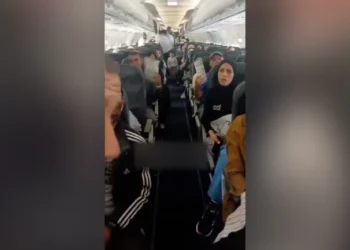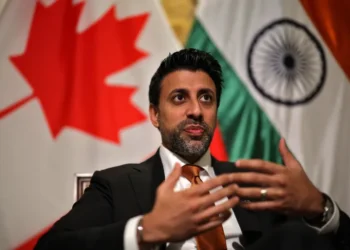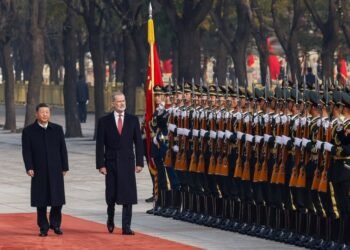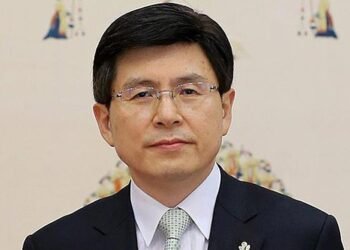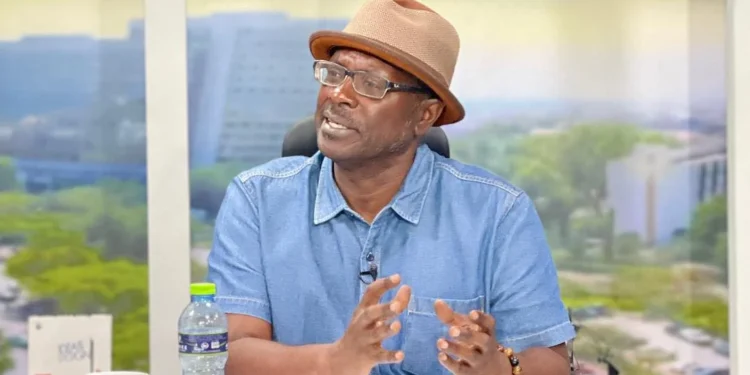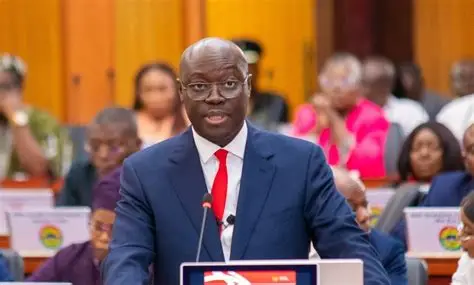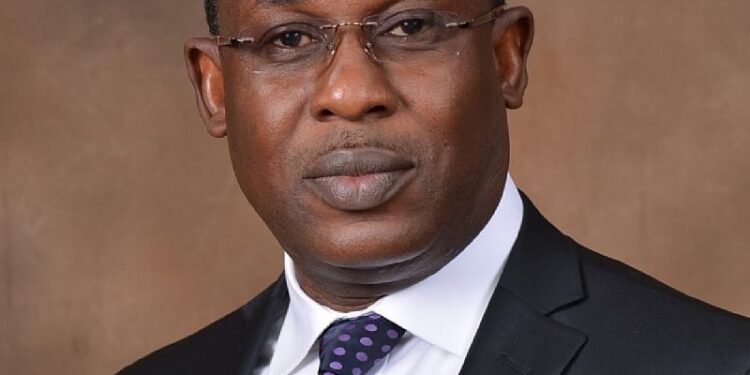Israel’s military has launched air strikes near Syria’s presidential palace in Damascus after accusing the Syrian authorities of failing to protect the country’s Druze minority from sectarian violence.
The Druze minority are a 10th-century offshoot of a branch of Shia Islam, and live primarily in Syria, Lebanon and Israel, and have been allies of Israel with many Druze serving in the Israeli military.
The attack early on Friday, May 2, 2025, was the second of its kind by Israel this week and is seen as sending a strong message to Syria’s transitional government led by President Ahmed al-Sharaa.
The Israeli military in a statement confirmed the attack, without specifying the target.
In a joint statement with Israel’s Defence Minister, Israel Katz shortly after the attack, Israeli Prime Minister, Benjamin Netanyahu said, “This is a clear message to the Syrian regime: We will not allow [Syrian] forces to deploy south of Damascus or any threat to the Druze community.”
Clashes have erupted between regime forces, Islamist factions, and Druze militants in Syria over the past few days, underscoring the fragility of the relatively new governing regime in Damascus.
More than 100 people were killed this week during fighting between pro-government forces and Druze fighters in Syria.

The violence has been condemned as a “genocidal campaign” by Syria’s Druze spiritual leader Sheikh Hikmat al-Hijri, who called for an immediate intervention by “international forces to maintain peace and prevent the continuation of these crimes.”
On Thursday, Israel’s Foreign Minister, Gideon Saar urged the international community to “fulfil its role in protecting the minorities in Syria – especially the Druze – from the regime and its gangs of terror.”
However, an agreement announced on Thursday night between some Druze leaders and the regime is giving hope that some calm can be restored, and senior members of the Syrian Druze community have expressed a willingness to cooperate with the Syrian regime, something they had previously been reluctant to do.
Israel has previously called Syria’s transitional government a “terror group from Idlib that took Damascus by force” and has ramped up its support for the Druze minority this week.
Israel has carried out almost 800 strikes in Syria and hundreds of ground incursions since the fall of Bashar al-Assad last December, and Israel Defence Forces troops remain in a new “buffer-zone” extending out from the occupied Golan Heights.
Israel has repeatedly offered to protect the Druze community in Syria, many of whom live in villages close to the Israeli border.
This week, two Druze members were evacuated to Israel for medical treatment.
Sectarian Violence Poses Challenges To Al-Sharaa’s Government

Syria’s President Ahmed al Sharaa, who was an al Qaeda Commander, has promised to unite Syria, but there have been repeated outbreaks of sectarian violence, threatening the country’s stability and calling into question whether the new government is inclusive.
The sectarian violence poses one of the most serious challenges yet to the government of al-Sharaa, who led a coalition of rebel groups to overthrow Syria’s President Bashar al-Assad in December.
Syria has been faced with sectarian violence since then.
According to the UK-based Syrian Observatory for Human Rights, the fighting this week follows a massacre in March of more than 1,700 civilians from the Alawite community by security forces and allied groups.
The Alawites, who are traditionally based near the Mediterranean coast in western Syria, are the same ethnic group as the toppled al-Assad.
Syrian Foreign Minister, Asaad al-Shaibani on Thursday called for “national unity” as “the solid foundation for any process of stability or revival.”
He wrote on X that any call for external intervention, “under any pretext or slogan, only leads to further deterioration and division.”
READ ALSO: Northern Ghana Gets Horticulture Boost as Agrihouse Launches Ambitious Agribusiness Project




